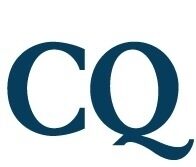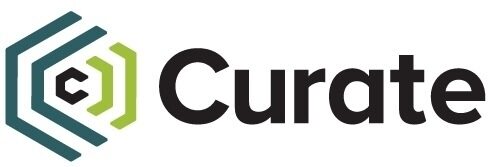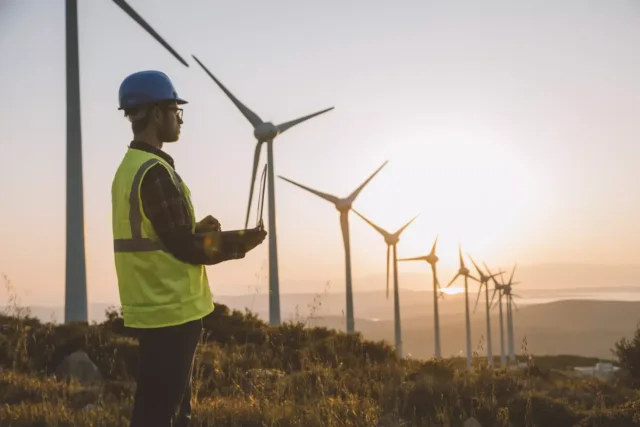European Election News
by Danilo Gattullo, FiscalNote
The makeup of the new Parliament is changing. Stay connected to what's going on as we cover every phase in detail.

Complimentary List of MEPs from the Three Largest Countries in the EU
| What will happen? | When |
23-26 May 2019 | |
1 November 2019 | |
1 December 2019 |
European Parliament Elections Analysis
Updated: 21 June, 2019 through FiscalNote's EU Issue Tracker
In a direct vote on 23-26 May, citizens in 28 EU member states elected 751 MEPs to form the new Parliament for the period 2019-2024. MEPs are elected according to national electoral systems, but these have to observe certain common rules established by EU law such as proportional representation and common provisions on electoral thresholds.
EU leaders failed to reach an agreement on the nominees for Commission presidency during the European Council meeting over 20-21 June.
Latest
- The European Council discussed nominees for the European Commission presidency over 20-21 June.
- EU leaders will meet again at an extraordinary meeting of the European Council on 30 June to continue their talks on appointments for the EU's top jobs.
- Current Commissioners Maroš Šefčovič (Slovakia) and Valdis Dombrovskis (Latvia) have been re-confirmed by their respective governments to serve on the next Commission.
Analysis
Following the summit, in the early hours of 21 June, the European Council President Donald Tusk confirmed that leaders could not find a majority for any of the lead candidates proposed by the EU political families.
The European Council agreed that there needs to be a package reflecting the diversity of the EU, Donald Tusk said. Talks are scheduled to continue at an extraordinary summit on 30 June. The European Council needs at least 21 of 28 EU countries, comprising 65 percent of the EU's population to select a candidate.
Member States likely aim to reach an agreement on the Commission presidency ahead of the first European Parliament's plenary scheduled for 2 July. According to the Treaties, MEPs must elect their President during the first plenary session. If an agreement among political forces on all the EU's top jobs is not reached before the first plenary, the Parliament will be obliged to elect their President, severely limiting EU leaders' options for the other top jobs.
The Spitzenkandidaten system would benefit Manfred Weber (EPP, Germany), the Spitzenkandidat of the largest political group who has hopes to become Commission President. However, Weber is not supported by a number of Member States, including France, due to his lack of experience, as he has never been a Prime Minister in an EU Member State.
Additionally, on 20 June the leaders of S&D group and the newly formed Renew Europe group in the European Parliament reportedly said that they would not support Weber as new Commission President.
Dacian Cioloș, the leader of Renew Europe in the Parliament, said that the liberals are still supporting Margrethe Vestager for the presidency.
In light of these developments, it is now less likely that the Spitzenkandidat system pushed by the European Parliament in 2014 will be again followed in 2019.
While a decision for the Commission presidency has not yet been finalised, a few Member States have confirmed their nomination for the EU's executive body. So far, current Commissioners Maroš Šefčovič (Slovakia) and Valdis Dombrovskis (Latvia) have been re-confirmed by their respective governments to serve on the next Commission.
Next Steps
European Parliamentary political groups are expected to continue informal negotiations with the European Council on the next Commission President. A final decision would be taken at the European Council summit on 30 June.
In July 2019, the new European Parliament is expected to vote on the candidate for Commission President proposed by the European Council in a plenary session. If the candidate does not obtain the required majority (half of the MEPs plus one), the European Council has one month to propose a new candidate to the European Parliament.
The new Commission President ("President-elect") will then select Commission's Vice Presidents and Commissioners based on recommendations from Member States. In September 2019, European Parliament’s Committees will organise a hearing of each commissioner-candidate responsible for their policy area(s).
Then, the European Parliament is expected to give its consent to the appointment of the Commission, as a whole, in October 2019.
Therefore, the European Council Decision formally appointing the new European Commission is expected to be published in the EU Official Journal by the end of October 2019. It is expected to enter into force on 1 November 2019.
Background
The Decision would confirm the appointment of the new Commission for 2019-2024. It is expected to provide a list of the Commission's members, consisting of one national of each Member State, including the Commission's President, the High Representative of the Union for Foreign Affairs and Security Policy and the Commissioners.
The new Commission will take office on the day following the end of the current term of the Commission on 1 November 2019 until 31 October 2024.
Previous Update
Updated: 29 May, 2019 through FiscalNote's EU Issue Tracker
Manfred Weber or Margrethe Vestager are rumored to be favorites to become the next Commission President as the EU leaders met to take stock of the 2019 European elections results during an informal dinner on 28 May.
Five senior positions in the EU are to be filled in 2019: Commission President, Council President, European Parliament President, European Central Bank President, and EU High Representative of the EU for Foreign Affairs and Security Policy.
This procedure for electing the Commission President is expected to see some political maneuvering: (1) between the European Parliament and European Council (2) between political parties in the European Parliament, and (3) between the Member States in the Council.
(1) European Parliament
Within the European Parliament, all political parties have either put forward one or two Spitzenkandidaten or have established a list of eligible candidates.
The following Spitzenkandidaten have been put forward by the Political Groups in the 2019 European elections:
| Political Group | Spitzenkandidaten |
EPP | Manfred Weber |
S&D | Frans Timmermans |
ALDE | Margrethe Vestager, Guy Verhofstadt, Nicola Beer, Katlin Cseh, Luis Garicano, Emma Bonino, Violeta Bulc (Europe Team) |
S&D | Frans Timmermans |
Greens | Ska Keller, Bas Eickhout |
S&D | Frans Timmermans |
EFA | Oriol Junqueras |
ECR | Jan Zahradil |
GUE/NGL | Nicu Cué, Violeta Tomić |
With the EPP candidate Manfred Weber supported by the political group with the largest number of MEPs and with any candidate needing the EPP support, the EPP appears to have a commanding position.
Mr Weber has been quick to invite Member State leaders to discuss the selection of a Commission President candidate. However, as Member States did not want to pre-empt the choice of candidates, these discussions have not gone anywhere.
Mr Weber is opposed by a large number of MEPs from the other political groups. Key objections include the fact that the EPP lost a large number of MEPs with the ALDE and Greens/EFA Groups making gains.
The French LREM in line with the French Government oppose MEP Weber as a Commission President, a position that is likely to receive the backing of the ALDE Group. The ALDE Group supports their own candidate, current Competition Commissioner Margrethe Vestager.
The Greens have indicated that they could support Commissioner Verstager as a compromise candidate, as they consider her a Spitzenkandidat and as providing gender balance in the senior EU positions.
The S&D Group supports their own Spitzenkandidat, Frans Timmermans, the former Commission First Vice President, arguably the most qualified of the candidates and with the advantage of coming from the Netherlands - as nominating the Commission President from smaller Member States is usually preferred as it is less divisive.
The S&D Group have made advances to the ALDE Group, expressing support for transnational lists during the next European elections, but have also shown willingness to compromise with the EPP.
The EPP candidate further faces opposition from in his own political group, as the Hungarian Fidesz Party has announced its opposition to Manfred Weber.
(2) European Parliament and European Council
The key question is whether the Spitzenkandidat system pushed by the European Parliament in 2014 will be followed in 2019. Despite the Parliament having insisted on the system being used, it is opposed by some political groups and crucially France.
In light of the results of the election however it is unclear how the European Council is to choose the Commission President. Therefore despite some political groups having pledged not to elect a candidate that was not run as a Spitzenkandidat (a lead candidate put forward by the political groups) it is not clear if the political parties will be able to insist on the process.
The Spitzenkandidaten system would benefit Manfred Weber (EPP, Germany), the Spitzenkandidat of the largest political group who has hopes to become Commission President. While he is supported by Germany in the Council, which would like the next Commission President to be German, Mr Weber is not supported by France due to his lack of experience - he has never been a Prime Minister in an EU Member State.
During a meeting of the political parties with the European Parliament President on 28 May a statement was produced, which emphasized that a majority in the European Parliament supports the Spitzenkandidat system.
However , the Spitzenkandidat system is opposed by the centrist ALDE Group. The French President Emmanuel Macron and other Member States feel that accepting the Spitzenkandidaten system would erode Member States powers and is not supported by the Treaties. The French President has argued that the Spitzenkandidaten system should be taken into account, but not be applied automatically.
The ALDE Group, which has been joined by President Macron's party La République en marche (LREM), argues that a Spitzenkandidat system without transnational lists would create a fair result. For this reason, the ALDE Group proposed a list of ALDE politicians eligible for executive positions, without proposing a Spitzenkandidat.
(3) European Council
Both France and Germany seek to get one of the 5 senior positions, made easier in light of the UK's anticipated withdrawal from the EU.
Germany is understood to want either the EPP candidate Manfred Weber as Commission President or the position of ECB President for the German Bundesbank President Jens Weidmann.
French President Macron, meanwhile, proposed EU Chief Brexit Negotiator Michel Barnier as a non-Spitzenkandidaten candidate for the Commission Presidency. Two French candidates are running for the ECB Presidency.
This may lead to a compromise by sharing these positions. However, this is likely to generate opposition from the other Member States.
In the background brief published by Council President Tusk ahead of the informal lunch, he makes clear that the persons chosen to hold the different offices of the EU should come from diverse backgrounds.
This diversity, the Council President clarified, required geographic, demographic, political, and gender balance.
As such, Commissioner Verstager might be preferred as Commission President, as a female candidate coming from a smaller Member State.
Compromises
During the meeting of the Presidents of the political groups with the European Parliament President, the statement emphasized that a majority in the European Parliament supports the Spitzenkandidaten system.
If the European Parliament is ready to reject all non-Spitzenkandidaten, as it has threatened to do, this could delay the nomination of the Commission President and the Commission itself. EU leaders, meanwhile, will seek to propose a candidate that will not implicitly approve the Spitzenkandidaten system.
However, another dimension of the election is the political allegiance of the Commission President with several political parties wanting a change from the EPP Group.
Again Commissioner Verstager as the ALDE "Spitzenkandidat" (despite the ALDE Group not officially participating in the system) may prove to be the only compromise candidate between the European Parliament and the Council.
However, the EPP could decide to support the other proposed EPP candidate Michel Barnier who has more experience than Mr Weber. As the majority of EU leaders in the Council belong to the EPP Group they may be willing to support this.
Ready to see for yourself?
See how EU Issue Tracker saves you time and resources, with targeted alerts and forward-looking analysis.
The Road Forward Post EU Elections
Updated: January 2019
Following the vote, new Political Groups will be formed during the month of June 2019. Each MEP will decide to formally become a member of an EU political group and each group will internally elect its bureau and president. The formation of a new political group requires 25 MEPs from 7 different Member States.
At the first plenary session (2-4 July 2019) MEPs will elect the bureau of the European Parliament (President, 14 Vice-Presidents and 5 Quaestors). The President should be elected by an absolute majority of MEPs.
If no member holds an absolute majority after three ballots, a fourth ballot is held with only the two members holding the highest number of votes on the previous ballot. If there is still a tie following this, the eldest candidate is declared elected.
European Parliament’s Committees will also be set up and their scope defined. During the first Committee meeting (July 2019) the Committees’ Presidents and Vice-Presidents will be elected by the MEPs members of those Committees.
All elected offices in the European Parliament, i.e. President, Vice-President, Quaestor, Committee Chair and Vice-Chair are renewed every two and half years, so once at the start and once half-way through the 5-year legislative term. Current office-holders can be confirmed for a second mandate.
New Commission
During the month of June 2019 EP political groups are expected to start informal negotiations with the European Council on the next Commission President. The European Council will propose a candidate for this position to the European Parliament, taking into account the results of the Parliamentary elections.
At this stage, it is not certain whether the next Commission President will be the “lead candidate” (“Spitzenkandidat”) appointed by the EU party that wins the most seats in the European Parliament elections.
In a resolution adopted in plenary in February 2018, Parliament warned that it would reject any contender for EU Commission President who is not nominated as the “Spitzenkandidat” by their own EU party ahead of the 2019 EU elections. This was used for the first time in 2014, when the European People’s Party’s lead candidate Jean-Claude Juncker was appointed Commission President.
In contrast, at an informal meeting held on 23 February 2018, the EU 27 Heads of State and Government agreed that that the European Council could not guarantee in advance that it would propose one of the lead candidates for President of the European Commission.
In July, the new Parliament is expected to vote on the candidate proposed by the European Council as new Commission President in its plenary session. If the candidate does not obtain the required majority (half of the MEPs plus one), the European Council has one month to propose a new candidate to the European Parliament.
The approved candidate will then choose Vice Presidents and Commissioners based on the recommendation from Member States. Given the position of the High Representative for Foreign Affairs and Security Policy as a Vice-President of the Commission, the choice of a new High Representative will necessarily have to be made in conjunction with the selection of the other Commissioners.
In September, European Parliament’s Committees will organize a hearing of each commissioner-candidate responsible for their policy area(s). During these hearings, the candidates will explain their political priorities and answer MEPs questions.
The European Parliament must vote on the approval of the Commission as a whole. Therefore, it can threaten to veto the entire Commission if one or more candidates are not deemed suitable.
After the entire the Commission has been approved by the Parliament, they are formally appointed by the European Council, acting by a qualified majority. This is expected to take place in October, so that the new Commission can take office on 1 November.
European Council
The appointment of the Commission will be followed by the appointment of the new President of the European Council.
The European Council defines the European Union’s overall political direction and priorities. The President of the European Council chairs the European Council meetings and ensures the preparation and continuity of the work of the European Council in cooperation with the President of the Commission and the Member States.
The President is appointed by qualified majority of the members of the European Council, for a period of two and half years renewable once. The appointment of the President is expected to take place between the months of October and November 2019.
The newly appointed European Council President will officially take office on 1 December 2019.














